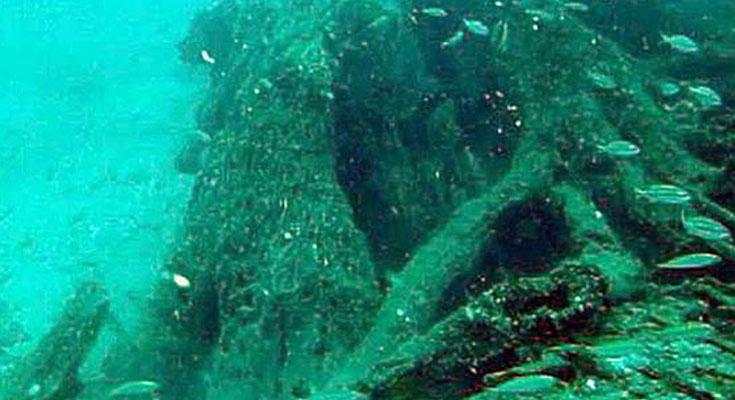By Craig Monger
Congressman Jerry Carl has introduced legislation to protect Alabama's historic underwater forest.
The Alabama Underwater Forest is a collection of cypress trees that have been submerged under the Gulf of Mexico for thousands of years. The forest was revealed after Hurricane Ivan passed through the area washing away the debris that had previously buried it. The forest is dated to be around 40-50 thousand years old, existing in an earlier period of glaciation.
The forest is a distinctive ecological artifact since it is the only known coastal ice-age location from that period that remains preserved on earth. All other similar systems have been wiped out through natural courses of destruction. The uniquely preserved nature of the forest makes it of immense scientific and observational value, allowing the study of ancient ecosystems that have, until now, been relegated to speculation.
If passed, the bill would designate the forest as a sanctuary, subject to all the protections provided to similar natural sites. The bill would prohibit salvaging, dredging, detonating, or drilling in the area designated for the forest.
Fishing, diving, and other recreational activities would still be permitted in the area.
The forest's proximity to the coast makes it ripe for all manner of disturbances. Cypress trees are remarkably resilient, so the submerged trees could be used to create various items, and the ancient nature of the wood carries a hefty price tag. Tables, chairs, tools, and instruments could be fashioned from cypress wood and sold for an exceptionally high price.
Ben Raines, an environmental journalist, and filmmaker told Living On Earth that the sight could become a proverbial treasure trove for those who can market the novelty of ancient pieces of timber.
"I've been visiting it now for a year," Raines said. "And so, I've got all these groups and companies calling me wanting to mine the logs. There's a phenomenon called "sinker logs" where old Cypress trees that were actually so dense, they couldn't float would sink to the bottom of rivers, and there are companies now that go around and salvage these things, and they're worth quite a lot of money."
According to Raines, there would be a massive commercial opportunity for those who stand to benefit from selling items fashioned from antique wood.
"I don't want Fender and Gibson to get ahold of them and start making 50,000-year-old guitars or 50,000-year-old coffee tables," Raines said. "I'd like to see this preserved and in this enchanted little environment where people can enjoy it."
The proposed legislation would assure that the forest remains undisturbed by those who would otherwise wish to plunder the sight for amusement or financial gain.
Future plans include more rigorous preservation of the forest and improving the site to make it more accessible for visitors, divers, and fishermen. The bill would continue to allow the scientific integrity of the forest to be preserved while still allowing the public to enjoy fishing and exploring the historic site.
Carl believes that preserving the underwater forest would not only protect the invaluable scientific integrity of the site but also increase tourism to the area.
"Alabama is blessed with so many natural resources and unique attractions, so it's critically important we protect and preserve them," Carl said. "I'm proud of my bill that would designate the underwater forest off the coast of Alabama as a national marine sanctuary and ensure folks can fish, dive, and explore the site for generations to come. This bill would increase tourism opportunities along the Gulf Coast and would be a huge boost to south Alabama's economy,"
An annual allocation of $1 million for the fiscal years of 2023 to 2027 would also be created to carry out the bill's provisions.
To connect with the author of this story, or to comment, email Craig.Monger@1819News.com.










